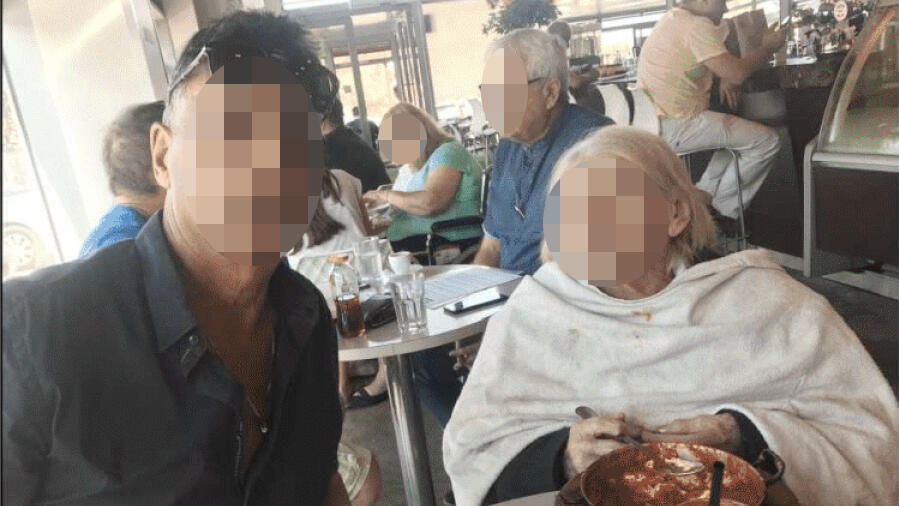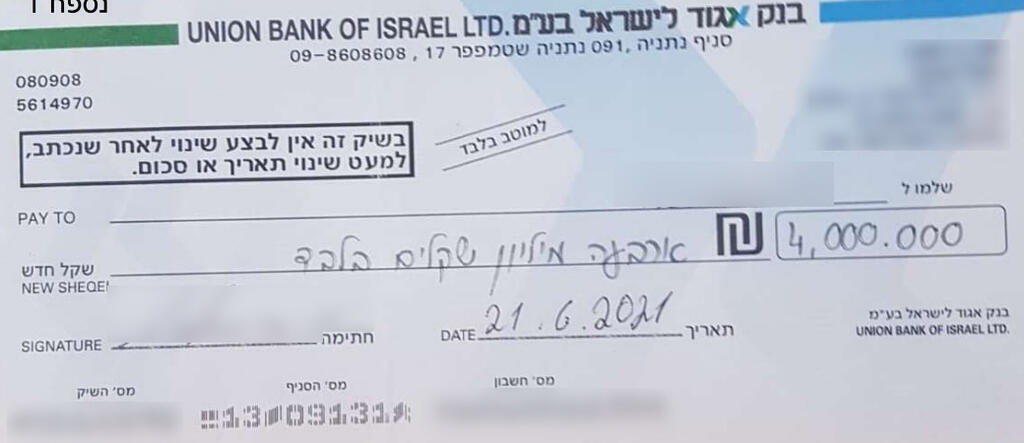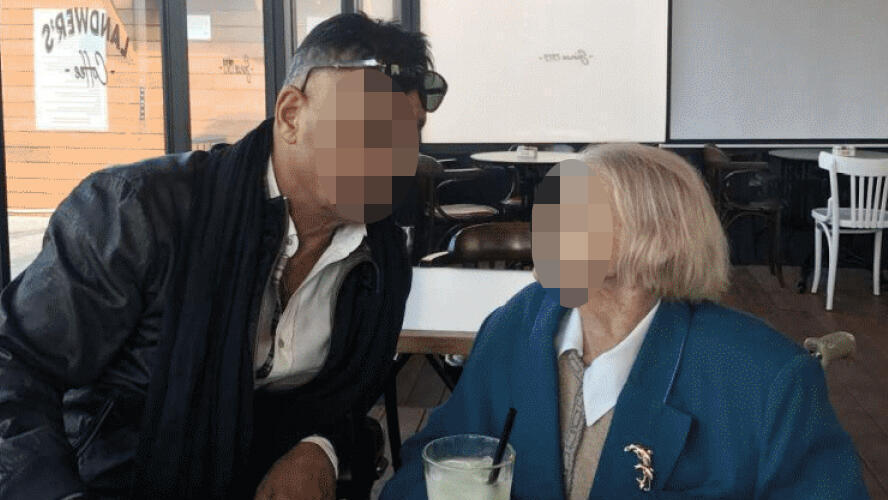A nearly unbelievable story first revealed by Ynet's sister outlet Calcalist over three years ago has taken a new turn — one that appears to hinge on whether the case involves a generous gift or an elaborate fraud.
The saga began in November 2021, when a family from Netanya filed a lawsuit claiming they had cared for and supported their neighbor, G., a widowed and childless woman who lived across the hall from them for about 40 years.
According to the case, during a Rosh Hashanah dinner in 2010, G. handed them an envelope. Inside, to their astonishment, was a check for NIS 4 million ($1 million), allegedly given as a gesture of gratitude for their support.
The father of the family said he hesitated after opening the envelope and soon spoke with G., who allegedly told him it was her final wish for them to have the money and instructed him only to fill in a date and cash it when the time was right. “You are my family,” she reportedly told him. Still, he waited.
Years passed, and G.’s health and mental capacity declined. In March 2017, a court appointed a legal guardian for her after she was deemed unfit to manage her affairs. In June 2021, the neighbor filled in the date and deposited the check. The bank rejected it.
He then approached G.'s guardian, claiming the check was valid and had been held legally. The guardian disagreed, responding in a letter — attached to the lawsuit — that the circumstances suggested “the exploitation of a helpless, lonely elderly woman.”
Get the Ynetnews app on your smartphone: Google Play: https://bit.ly/4eJ37pE | Apple App Store: https://bit.ly/3ZL7iNv
G. died in March 2022, four months after the lawsuit was filed. Recently, during the ongoing legal proceedings, a man identified as A., the primary heir to G.’s estate under her will, submitted a sworn affidavit. According to official documents, G.’s assets included a rental apartment building in a European country and a pension tied to her dual citizenship.
In his statement, A. said he met G. in 2007 while renovating her home. Over time, he claimed, their relationship grew close, with G. eventually becoming a regular guest in his household. He disputed the neighbors’ narrative, asserting they had never cared for her and that G. had in fact spent that Rosh Hashanah holiday with his family, not theirs.
According to documents submitted to the court, A. managed G.’s needs after her health deteriorated and did so with her request and the guardian’s later approval. Her will included bequests to others as well — such as her housekeeper and her late husband’s grandchildren from a previous marriage, who each received NIS 100,000 ($25,000).
In the will, G. wrote that she had no children and chose not to leave anything to other relatives, saying they had already received “significant property and money over the years” but had shown “no interest in me, other than in a clearly ugly and transparent manner.”
She left the remainder of her estate to A., “who cared for me, looked after my needs and made my final years more pleasant.”
A. also pointed to a clause in the will in which G. wrote: “As I’ve recently been harassed by potential heirs and neighbors trying to inherit from me while I’m still alive, I request that a copy of this will be sent to the Israel Police.”
In his affidavit, A. claimed that “in hindsight, she was likely referring to the plaintiff — the neighbor — who tried to extract money from her during her lifetime. This clause, in my view, nullifies any promise or gift, if such a gift was ever even given.”




